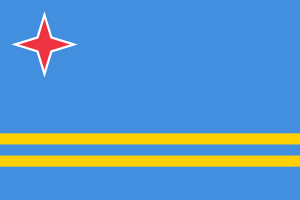Difference between revisions of "Language/Papiamento/Vocabulary/Family"
< Language | Papiamento | Vocabulary
Jump to navigation
Jump to search
(Created page with " == famia <small>- family</small> == {| class="wikitable" |Papiamento |English |- |madú, madushi, wela |grandmother |- |padú, padushi, tawela |grandfather |- |mayó(r)nan |...") |
|||
| Line 1: | Line 1: | ||
<div class="pg_page_title">Family in Papiamento</div> | |||
[[File:Aruba-Timeline-PolyglotClub.png|thumb]] | |||
Kon ta bai? Papiamento Learners! 😃 | |||
➡ In today's lesson you will learn how to write and pronounce the '''family members in the Papiamento language'''. | |||
Happy learning! | |||
== famia <small>- family</small> == | == famia <small>- family</small> == | ||
{| class="wikitable" | {| class="wikitable" | ||
!Papiamento | |||
!English | |||
|- | |- | ||
|madú, madushi, wela | |madú, madushi, wela | ||
Revision as of 13:46, 16 January 2022
Family in Papiamento
Kon ta bai? Papiamento Learners! 😃
➡ In today's lesson you will learn how to write and pronounce the family members in the Papiamento language.
Happy learning!
famia - family
| Papiamento | English |
|---|---|
| madú, madushi, wela | grandmother |
| padú, padushi, tawela | grandfather |
| mayó(r)nan | parents |
| papa, tata | father
dad |
| mama | mother
mom |
| esposo | husband |
| esposa | wife, spouse |
| hende | human being |
| hòmber [ES: el hombre] | man |
| muher | woman |
| miembro di famía | relatives |
| tío, omo | uncle |
| tía, tanta | aunt |
| subrino | nephew |
| subrina | niece |
| primu
prima |
cousin |
| mucha homber | boy |
| mucha muhé | girl |
| yiu homber | son |
| yiu muhé | daughter |
| ruman homber | brother |
| ruman muhé | sister |
| yiu | child |
| bebi, beibi | baby |
| amigo, amigu, kompai
amiga |
friend |
| bisiño [PT: o vizinho]
bisiña |
[male] neighbor
[female] |
| persona | person |
| pueblo | people |
